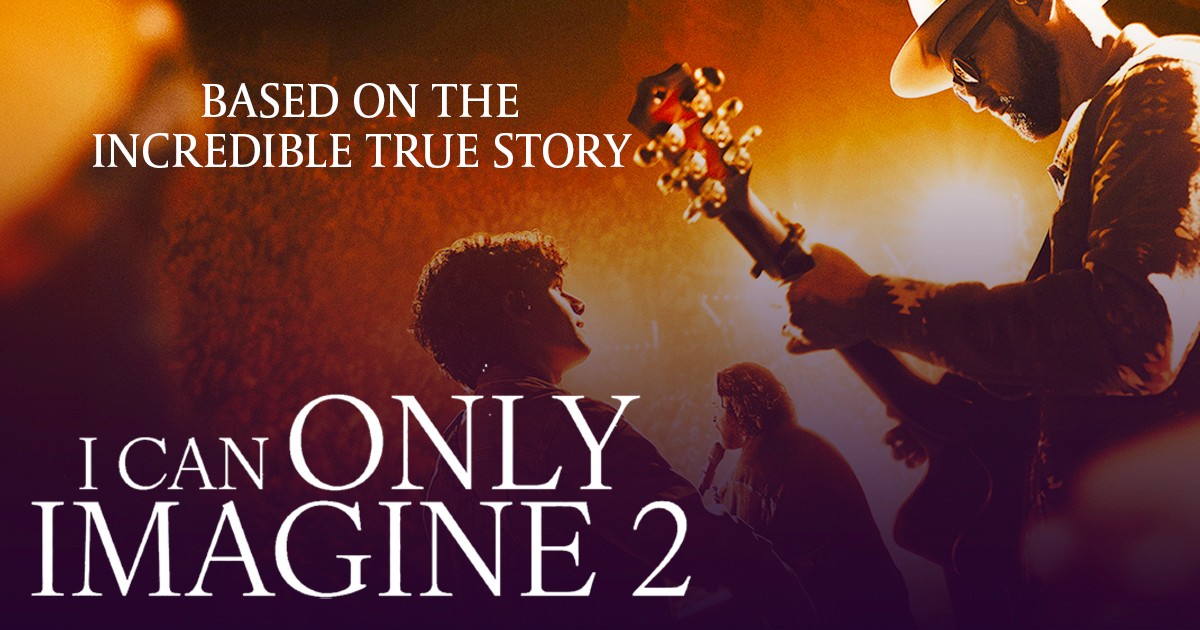 Salvation Army hospital chaplains meet people at their point of greatest need. Whether helping patients come to terms with their mortality, sharing difficult news with family members or supporting people in their time of loss, chaplains are no strangers to grief and death. John McAlister, Senior Editor, recently spoke to three Salvation Army chaplains about their ministry.
Salvation Army hospital chaplains meet people at their point of greatest need. Whether helping patients come to terms with their mortality, sharing difficult news with family members or supporting people in their time of loss, chaplains are no strangers to grief and death. John McAlister, Senior Editor, recently spoke to three Salvation Army chaplains about their ministry.
Major Barbara Champ is the director of spiritual and religious care at Toronto's Scarborough Hospital, Captain Brenda Hammond is the director of spiritual care at Toronto Grace Health Centre and Major Roy Dueck is a chaplain at Winnipeg Grace General Hospital.
How do you prepare yourself to support those who are dying or those who have lost, or are about to lose, a loved one?
Champ: As a chaplain, it is important to understand my own view of death and why I react the way I do. My own experiences will influence the way I respond to others. It's also important to have an understanding of other people's cultures and traditions. It's not about how I think they need to be supported, or how I personally would like to be cared for, but rather trying to understand their backgrounds and being able to minister to them in light of that. Of course, I also pray that God will use me to reflect his love and compassion.
Dueck: I try to focus solely on their situation and enter into it. I often whisper the prayer, “Christ to me, Christ to them.” I want to be the presence of Christ and visit them with his compassion.
Hammond: We wear a mantle of God to the patients and families when we come to the bedside. In the moment, I'll often ask God to direct me and give me his words to say. I try to stay connected to Christ and allow the Spirit within me to guide my response.
What unique challenges or situations do you face in your particular area of chaplaincy?
Dueck: In the hospice setting, there is little hope of improvement or recovery. It sounds harsh, but the hospice is a place where people die. The residents are generally aware when someone is suddenly missing. The death of others is always a reminder of their own future. I have to be aware that the people I visit will be sensitive to that.
Champ: In our hospital, one of the most difficult situations we encounter is sudden death. Our emergency department receives many accident victims whose injuries result in death. They might have been sitting with their family at breakfast, and then by lunchtime, they are gone. It's challenging to meet with their families in these tragic and unexpected situations.
We shouldn't try to minimize their grief. Through our presence we can show how much we love and care for them
We also deal with the challenge of multi-faith and multi-cultural ministry. We do our best to give everyone the support they need. It is a challenge as a strong Christian not to proselytize. We have to find the right balance between effectively supporting people of other faiths and at the same time remaining true to our Christian beliefs.
Hammond: We are functioning now in a second-generation unchurched society. Often people do not have a spiritual frame of reference for what's happening to them. Sometimes, if a patient is struggling, the nurse may suggest that it would be helpful for him to see a chaplain. The patient may respond by saying, “I'm not religious. I just can't figure out what my life is all about. I'm scared and I don't know what's going to happen next.” There's a disconnect here, as these are spiritual questions. Bridging that gap is definitely an area that we have to work at.
What do you wish people were more aware of when it comes to grief and death?
Hammond: When people are dying, often everything that they have been hiding or suppressing comes out. People are not at their best. If they drink, they will drink more. If they take drugs, they will take more. If they fight, they will fight more. When a loved one is dying, that is when you want to be a family. But how we live is how we die, so unless people learn how to deal with their issues, they will surface at the most difficult of times. When people take that stuff out from under the table, sort it through and keep working at it, it helps them have a better life and a better death.
Champ: I work frequently in the area of perinatal loss, which includes miscarriages, stillbirths and neonatal death. I wish that people would realize that this kind of loss is as great as the death of any child. There is so much more that could be done by churches and families to give support to those who have had miscarriages. Unfortunately, people often say things like, “Well, at least it was only a miscarriage and you didn't get to know the child.” From the moment of conception, parents start bonding with the child and have hopes and dreams for him. We shouldn't try to minimize their grief. Through our presence we can show how much we love and care for them. We can bring meals to the home, help with small chores and offer to do specific things for or with them.
 Dueck: When supporting those who are grieving, we should realize that our presence is most important. People should avoid too much talking, especially just to fill silent spaces. Avoid jumping in with clichés or pat answers. When appropriate, physical touch is a powerful communicator.
Dueck: When supporting those who are grieving, we should realize that our presence is most important. People should avoid too much talking, especially just to fill silent spaces. Avoid jumping in with clichés or pat answers. When appropriate, physical touch is a powerful communicator.
Can you give an example where God has worked to bring comfort, spiritual healing and peace?
Champ: Recently I was working with a couple who were expecting twins. When the family received the news that one of the twins was dying, the mother became extremely upset. One of our chaplains went to the couple. As the chaplain worked with her, the mother calmed down and there was a lot of prayer in that situation. When I spoke with the mother the next day, she said that she wouldn't have made it through the night if the chaplain hadn't been there and been praying with her. I visited with her every day for a week, and it was through prayer that we were able to give her the support she needed. A week later she delivered and lost both babies. A chaplain was there to bring God's love and comfort to this woman and her family. I truly believe that it was God who helped, and still helps, this couple work through the grief of losing those children. She will remain in contact with us and we will continue to give her prayerful support.
Hammond: I was involved with a patient who was agitated and overwhelmed. His family was equally in shock. When I was brought in, it was clear that it wasn't possible to bring peace to the situation. They couldn't say goodbye to their father and then the patient slipped into unconsciousness. We thought it would only be a matter of time before he died. The family conducted a death-bed vigil and then three days later, the patient woke up. His countenance had changed, and he was at rest and at peace. He had met his God and was able to verbalize this to his family. He said to them, “Everything is going to be OK.” I believe that God worked in a situation where we couldn't and prepared the family for the loss they were experiencing. He intervened and brought peace and stability to them.
Dueck: A 25-year-old man was killed in a snowmobile accident. He was brought into the hospital and as his family members arrived, none of them knew in advance that he had died from his injuries. I was called in to meet with them. I felt awkward and uncertain of how to respond or help. When his family left, they thanked me warmly for my assistance. It touched me that we can be of considerable support just through the ministry of presence.
How do you approach people from different religions or cultural backgrounds?
Champ: I approach them as one of God's children and try to meet their needs in a spiritual way. The ministry of presence is so important. Just being there in the spirit of God, showing love and compassion, is a great ministry. I try to treat individuals in the same way as I would want to be treated if I was a Christian patient being visited by a chaplain of another faith. I treat them with respect, support them in their own spiritual journey and do not take advantage of the fact that they are in a very vulnerable position. I do what I can to support them in their own faith. I try to find a spiritual leader from their own religion and, when applicable, someone who speaks their language. Often those people aren't available, so I will support them as best I can. As part of that support I will tell them that I am a Christian and ask them if I can pray with them. More often than not, they will say yes.
People are shocked by the number of their friends and family who pull away in their time of loss
Hammond: Once people are assured that their culture and faith will be respected, they are open to having a chaplain present. They are in crisis and want someone to journey with them. Through the Spirit, we are able to connect on a deep level and all those worldly boundaries of religion and culture can be overcome. I often say, “How can I help you in your journey?” After this, they usually permit me to be present with them during their time of despair.
Dueck: I make it clear that I am a Christian, but mention that I am there to offer support and encouragement regardless of their religious background. I try to establish an attitude of respect and take an interest in their story and perspective. I met with a patient who was a Jehovah's Witness. Although initially wary of my presence, his family became more responsive when we discovered that we had all previously lived in the developing world. Through shared stories, we made a connection and they became open to me speaking to their son and praying with them. When I meet with people, I pray for an open door to speak about spiritual matters. As an officer, my purpose is to preach the gospel of Jesus Christ, so I always pray that God will open that door.
What are the biggest challenges that families face when a loved one dies?
Champ: Initially, the greatest challenges are loneliness and fear. If it's a spouse, it feels like a part of their own body has been taken away. They can't imagine life without their partner. If they're young, they may have children to think about. There may be concerns about income. There are also tremendous emotions that emerge when families grieve, such as guilt. We often hear people say, “If only I had brought him to the hospital sooner” or “If only I had done something.” Anger is also very common. And there are all sorts of legal and financial affairs to be worked through, which can be difficult for families.
Hammond: People have a plan for their lives and like to have everything sorted out in their schedules. But nothing can prepare us for the death of a loved one, even for those who think they've prepared for it. Grieving isn't something you can schedule a week for and then expect to carry on.
Dueck: There are empty spaces in people's lives when a loved one dies. Their homes and routines are altered dramatically. They may have spent weeks or months visiting them and then these visits abruptly end. Their loved one is gone and they may be in a panic about what to do next. In some families, the greatest challenges centre on relationships. There is often guilt about unresolved issues, things left undone and words unsaid.
 How can the Church play a role in supporting people through the grieving process?
How can the Church play a role in supporting people through the grieving process?
Hammond: I think people are shocked by the number of their friends and family who pull away in their time of loss. Churches can recognize and select gifted people in their congregations to support and love those who are grieving. As well, we can make use of technology and schedule reminders six months ahead in our planners to call, visit and connect. Holidays and special occasions are especially hard, so we can be intentional about supporting people during these times.
Dueck: We can offer grief support groups, perhaps even targeted to specific individuals, such as spouses, parents or youth. We can also intentionally include the grieving person in church life. A married person can suddenly become single, but where do they fit in? They're not part of a married couple but not exactly single either. We need to do better at making them feel welcome and valued.
Champ: I'd like to see churches with trained grief support workers. Although we are usually good at supporting people for the first month of loss, we tend to assume that the grieving process ends after that. It usually lasts a minimum of a year, but often lasts much longer. The person who is grieving needs continual support and encouragement. Everyone grieves differently, so we need to be sensitive to their needs. Always pray that God will help you show them the love of God and the love of man.









Comment
On Sunday, June 7, 2009, Gil Contreras said:
On Saturday, April 18, 2009, Capt Patrick Lublink said:
Leave a Comment